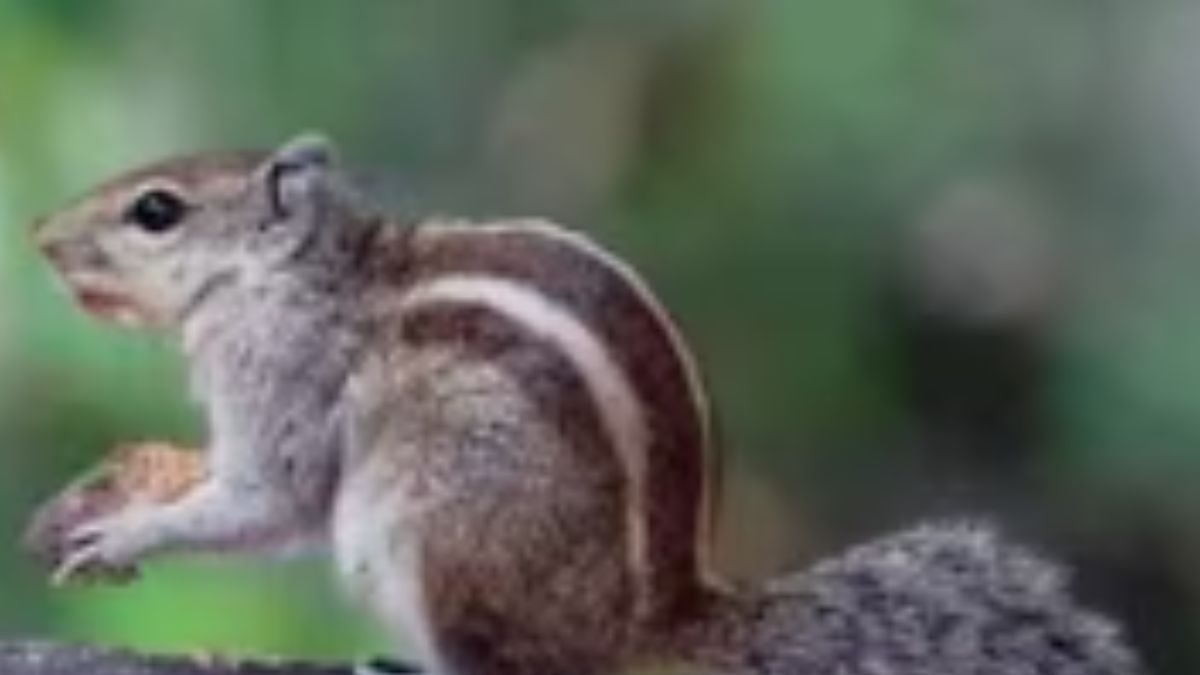The loss of forests is a global crisis with devastating consequences for biodiversity, human livelihoods, and the planet’s health. It disrupts ecosystems, displaces wildlife, and contributes to climate change. This story, however, offers a glimmer of hope amidst the bleak reality of habitat destruction. It highlights the powerful impact of human compassion and the resilience of nature, exemplified by the remarkable story of eight squirrels who found refuge in a mango tree, thriving thanks to the unwavering kindness of a caretaker.
A Story of Survival and Compassion
The loss of their natural habitat forced two squirrels to seek refuge in the mango tree in front of the Mangala indoor stadium in Mangaluru. Desperate for food and a safe haven, they were on the verge of succumbing to the harsh realities of displacement. It was Durga Devdas Shetty, the caretaker of the stadium, who saw their plight and stepped in to offer them a lifeline. He recognized their struggle and took it upon himself to ensure their survival. This simple act of empathy resonated with the squirrels, as they began to trust him and rely on his daily offerings of rice.
The Genesis of a Unique Bond
Over time, a remarkable bond blossomed between Shetty and the squirrels. Their daily routine evolved into a symbiotic dance of care and dependence. The squirrels, recognizing the regularity and reliability of Shetty’s provisions, learned to anticipate his arrival, waiting patiently for the rice he provided. This trust-based relationship demonstrated the profound ability of animals to connect with humans when offered compassion and support.
A Legacy of Kindness
Shetty’s unwavering commitment to these displaced creatures went beyond basic survival. He not only provided nourishment in the form of rice, but also ensured a balanced diet by offering fruits in the evening. This dedication fostered a healthy environment that allowed the squirrel population to thrive, eventually growing from two to eight individuals. Shetty’s actions went beyond simply alleviating their immediate need for food. He became an integral part of their lives, creating a haven for them amidst the turmoil caused by deforestation.
An Example for Humanity
Shetty’s story serves as a powerful reminder of the human capacity for compassion and its impact on the lives of others, particularly in the face of environmental devastation. His simple act of kindness created a ripple effect, providing not just nourishment but also a sense of stability and security for the squirrels. The fact that the squirrel population flourished under his care exemplifies how even small acts of compassion can contribute to the preservation of biodiversity.
The Importance of Habitat Preservation
The plight of the displaced squirrels and Shetty’s response to their need highlight the critical need to address the root causes of habitat loss. Deforestation, driven by human activities like logging, agriculture, and urbanization, is pushing numerous species towards extinction. The consequences of such habitat destruction are far-reaching, impacting not only wildlife but also human livelihoods and the global ecosystem.
A Collective Responsibility
Preserving forests is not just a responsibility of environmental agencies; it’s a collective endeavor that requires global participation. Individuals can contribute by supporting sustainable practices, reducing consumption, advocating for responsible land use, and supporting organizations that work towards habitat preservation.
Take Away Points
- The story of the squirrels highlights the powerful impact of compassion and the resilience of nature.
- Human actions, even simple gestures of kindness, can make a significant difference in the lives of other species.
- Habitat preservation is crucial for maintaining biodiversity and ensuring the survival of numerous species.
- The need for collective action to address the issue of deforestation and its consequences is paramount.
The squirrels of the Mangala indoor stadium serve as a beacon of hope, showcasing how amidst the dire consequences of habitat loss, kindness and compassion can make a tangible difference. Shetty’s actions remind us that even in the face of widespread environmental challenges, individual contributions can foster a more harmonious co-existence between humans and the natural world. This inspiring tale encourages us to acknowledge our shared responsibility in safeguarding the environment and supporting the diverse life forms that share our planet.




